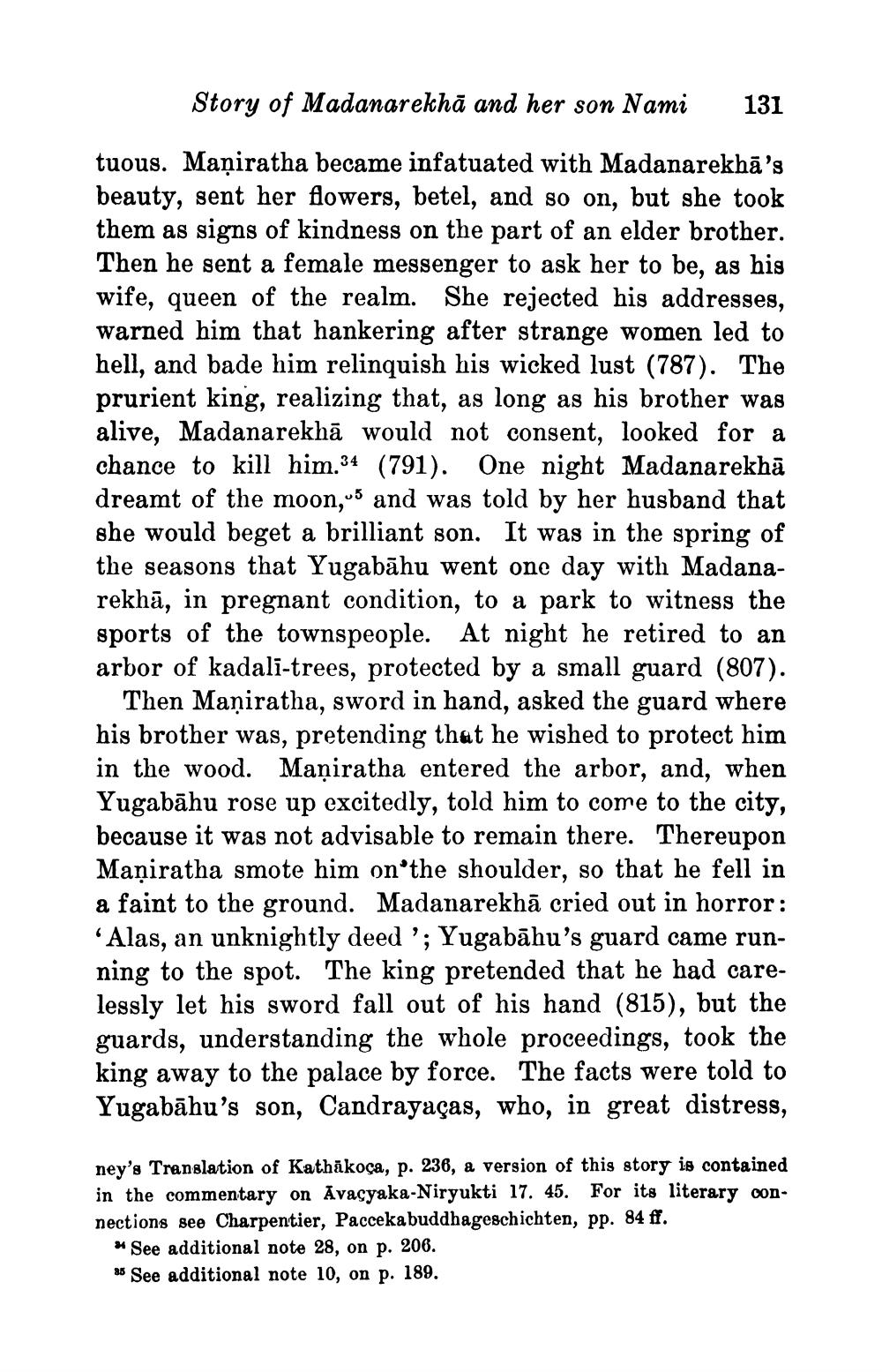________________
Story of Madanarekhā and her son Nami
131
tuous. Maņiratha became infatuated with Madanarekhā's beauty, sent her flowers, betel, and so on, but she took them as signs of kindness on the part of an elder brother. Then he sent a female messenger to ask her to be, as his wife, queen of the realm. She rejected his addresses, warned him that hankering after strange women led to hell, and bade him relinquish his wicked lust (787). The prurient king, realizing that, as long as his brother was alive, Madanarekhā would not consent, looked for a chance to kill him.34 (791). One night Madanarekhā dreamt of the moon,u5 and was told by her husband that she would beget a brilliant son. It was in the spring of the seasons that Yugabāhu went one day with Madanarekhā, in pregnant condition, to a park to witness the sports of the townspeople. At night he retired to an arbor of kadali-trees, protected by a small guard (807).
Then Maniratha, sword in hand, asked the guard where his brother was, pretending that he wished to protect him in the wood. Maạiratha entered the arbor, and, when Yugabāhu rose up excitedly, told him to come to the city, because it was not advisable to remain there. Thereupon Maạiratha smote him on'the shoulder, so that he fell in a faint to the ground. Madanarekhā cried out in horror: * Alas, an unknightly deed '; Yugabāhu's guard came running to the spot. The king pretended that he had carelessly let his sword fall out of his hand (815), but the guards, understanding the whole proceedings, took the king away to the palace by force. The facts were told to Yugabāhu's son, Candrayaças, who, in great distress,
ney's Translation of Kathākoça, p. 236, a version of this story is contained in the commentary on Avagyaka-Niryukti 17. 45. For its literary connections see Charpentier, Pacceka buddhageschichten, pp. 84 ff.
* See additional note 28, on p. 206. as See additional note 10, on p. 189.




